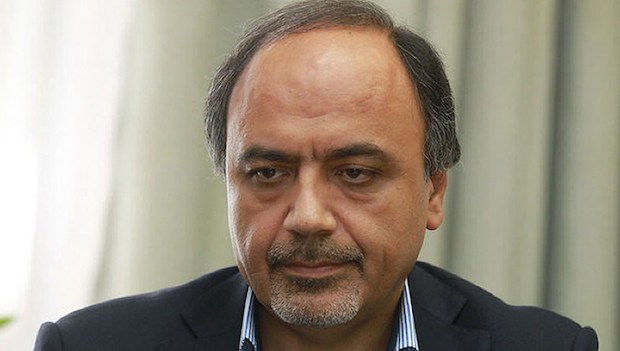
An undated handout picture released by the official website of the Iranian presidency on April 11, 2014, shows Tehran’s newly appointed UN ambassador, Hamid Aboutalebi. (AFP PHOTO/HO/PRESIDENT.IR)
London, Asharq Al-Awsat—Iran’s Deputy Foreign Minister Abbas Araghchi said on Saturday that Iran would challenge a US decision to not issue a visa to new Permanent Representative to the United Nations Hamid Aboutalebi through UN channels, according to a report carried by Iran’s semi-official Mehr news agency.
The UN had no immediate comment on the Iranian decision.
Aboutalebi, a senior Iranian ambassador who has previously headed its missions to the European Union and Australia, is also thought to have been involved with a student group responsible for the 1979 hostage crisis as the UN embassy in Tehran.
But the ambassador has been quoted describing his role in the student group as only being a “translator” when such services were required. “I was the [French-language] translator at the press conference when they released female and African-American hostages on humanitarian basis,” he told Khabar Online.
As the host of the UN headquarters in New York, the US regularly issues visas to members of UN delegations from countries it has tense relations with, often limiting the diplomats’ movements to a 25-mile (40-kilometer) radius from the UN building.
According to a March 11 report in the Washington Post, Aboutalebi’s visa application had been delayed for months, after it was announced in January that he would take over the post from Mohammad Khazaei.
The US decision not to approve the new Iranian ambassador’s visa application became public on Thursday, with White House press secretary Jay Carney telling a press gaggle that “our position is that we will not be issuing him a visa,” shortly after both houses of Congress unanimously passed a bill that would prevent the State Department from issuing a visa to any person involved in espionage or terrorist activities against the United States.
It is still unclear whether Obama will sign that bill into law, or if—as in other, rare cases where members of UN delegations have been prevented from entering the US—Iran is being given an opportunity to withdraw the application while the State Department declines to process it.
The dispute is threatening to undermine tense negotiations between Iran and the P5+1 world powers over Iran’s disputed nuclear program currently taking place in Vienna. But according to the White House press secretary, the talks “continue to be workmanlike and productive” after the United States’ chief negotiator informed the Iranian delegation in Vienna of the decision not to grant Aboutalebi a visa.
